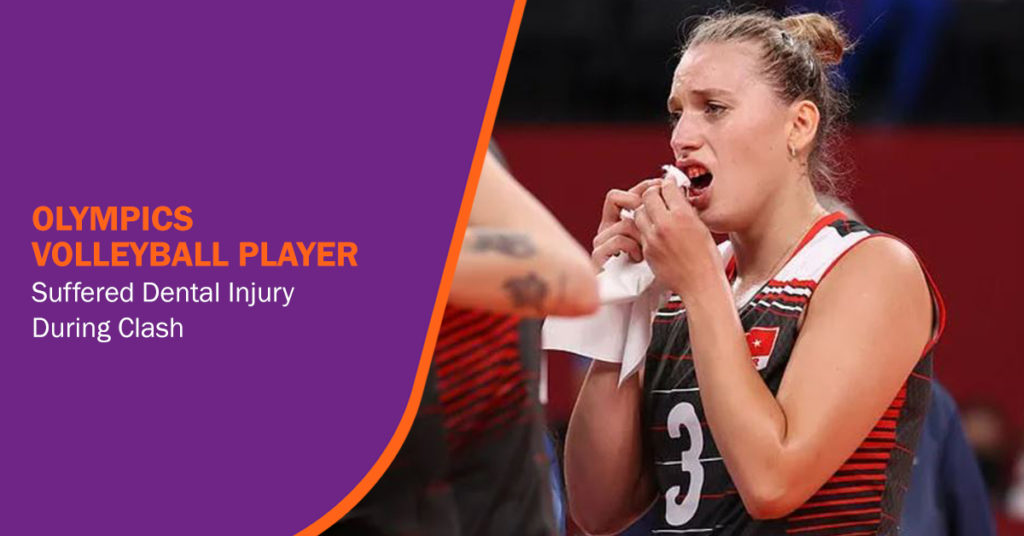Cansu Ozbay, a Turkish volleyball player, suffered a nasty head collision with teammate, Meliha Ismailoglu, during an Olympics Volleyball Women’s Tournament (Pool B) match against Russian Olympic Committee (ROC). It resulted in a dental injury where her front teeth broke. Despite the dental injury, she continued playing the match and helped her team to win 3-2.
💥 #EnBreve
— Radio Hit Oficial (@RadioHit923) August 2, 2021
⛩️ #Tokyo2020
Las jugadoras de la selección de voleibol femenino de Turquía 🇹🇷, Meliha Ismailoglu y Cansu Ozbay, intentaron salvar el balón en un partido contra Rusia 🇷🇺 y chocaron frente a frente.
Tras el impacto, la jugadora Cansu Ozbay perdió un diente. pic.twitter.com/Mi5I1fHtKf
Fortunately, other than Ozbay’s teeth, both players are fine and did not suffer any other serious injuries. As in the case of Harry Coppell, we are sure that Ozbay’s dental injury will be well taken care by the team of dental experts at the Tokyo Olympics.
Nonetheless, this accident highlighted the usefulness of a sports mouthguard in preventing dental injuries. According to the American Medical Society for Sports Medicine, sports-related dental injuries account for 40% of all dental injuries in the United States. The solution to this high statistic? Mouthguards.
Mouthguard prevent dental injury
Mouthguards provide the most significant oral protection and has been shown to reduce the risk of sport-related dental injuries. Properly fitted mouthguards are recommended by the American Dental Association for 30 athletic events, including both contact sports and limited-contact sports.
Contact sports
- Basketball
- Martial Arts
- Boxing
- Rugby
- Football
- Soccer
- Handball
- Water polo
- Hockey (Ice and Field)
- Wrestling
- Lacrosse
Limited contact sports
- Acrobatics
- Skateboarding
- Baseball
- Skiing
- Bicycling
- Skydiving
- Equestrian Events
- Softball
- Field Events
- Squash
- Gymnastics
- Surfing
- In-Line Skating
- Volleyball
- Racquetball
- Weightlifting
- Shot-Putting
- “Extreme Sports”
How to choose a mouthguard that prevent dental injury?
When choosing a mouthguard, make sure it fits properly. It should not hinder your speech or breathing. It should also be resilient and comfortable.
There are mainly three types of mouthguard that are available:
- Ready-made (stock) mouthguard – inexpensive but pre-made, hence may not fit very well.
- Mouth-formed “boil and bite” mouthguard – offers better fit than ready-made (stock) mouthguard when usage instructions are followed correctly.
- Custom-made mouthguard by your dental specialist / dentist – individually designed and made in the office of your dental specialist / dentist or dental laboratory. Like a tailored suit, a custom-made mouthguard will provide the most comfortable fit. Hence, it is a popular choice among athletes.
How long can a mouthguard last?
Depending on the usage level of the mouthguard, it may last for a year or more. If you are a teenager, replacement is especially important as your teeth and jaw continues to develop. It is recommended to bring your mouthguard to your dental specialist / dentist during your six monthly check ups so that they can help to check the fit and whether it is still effective in providing protection to your teeth.






